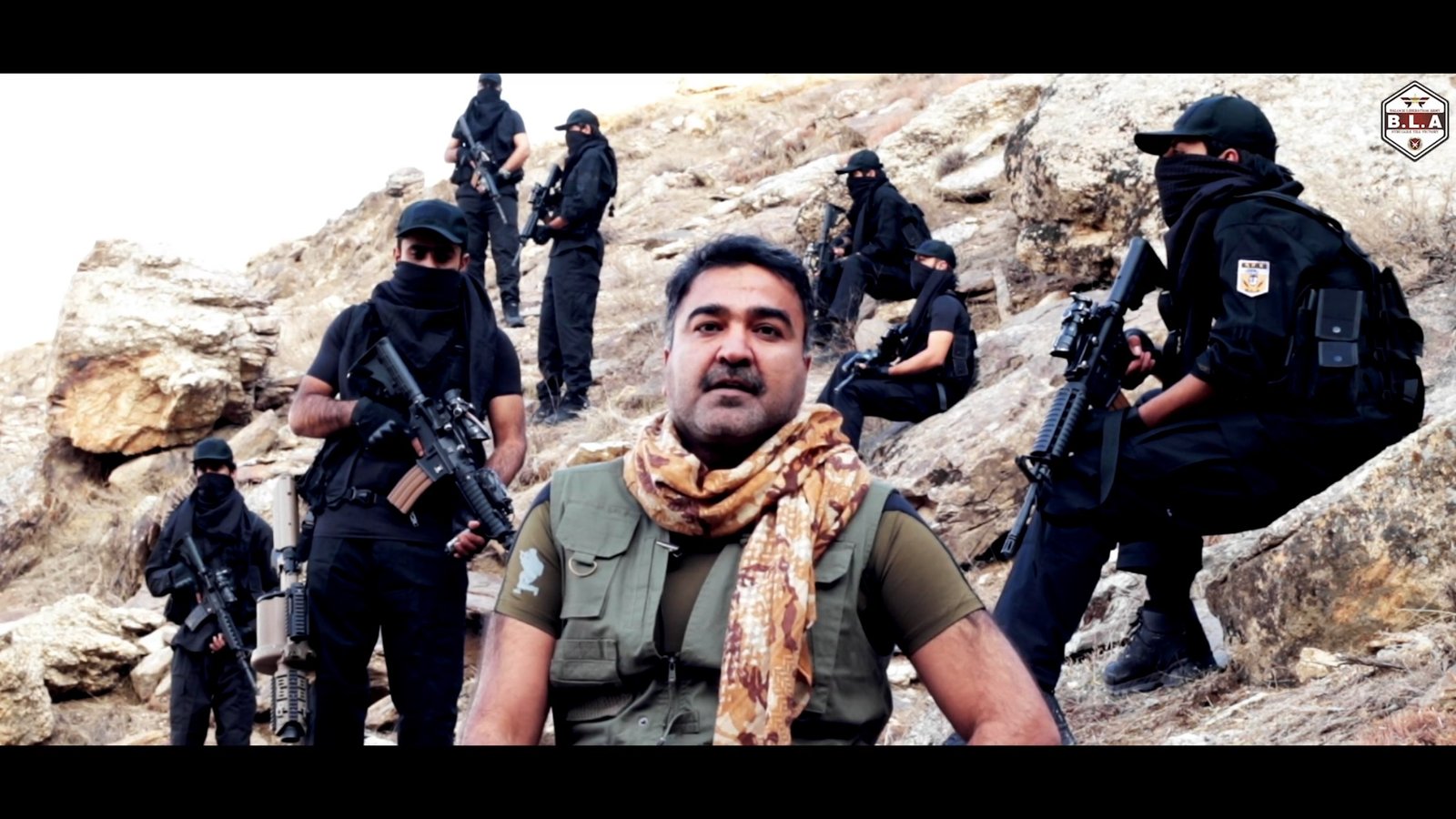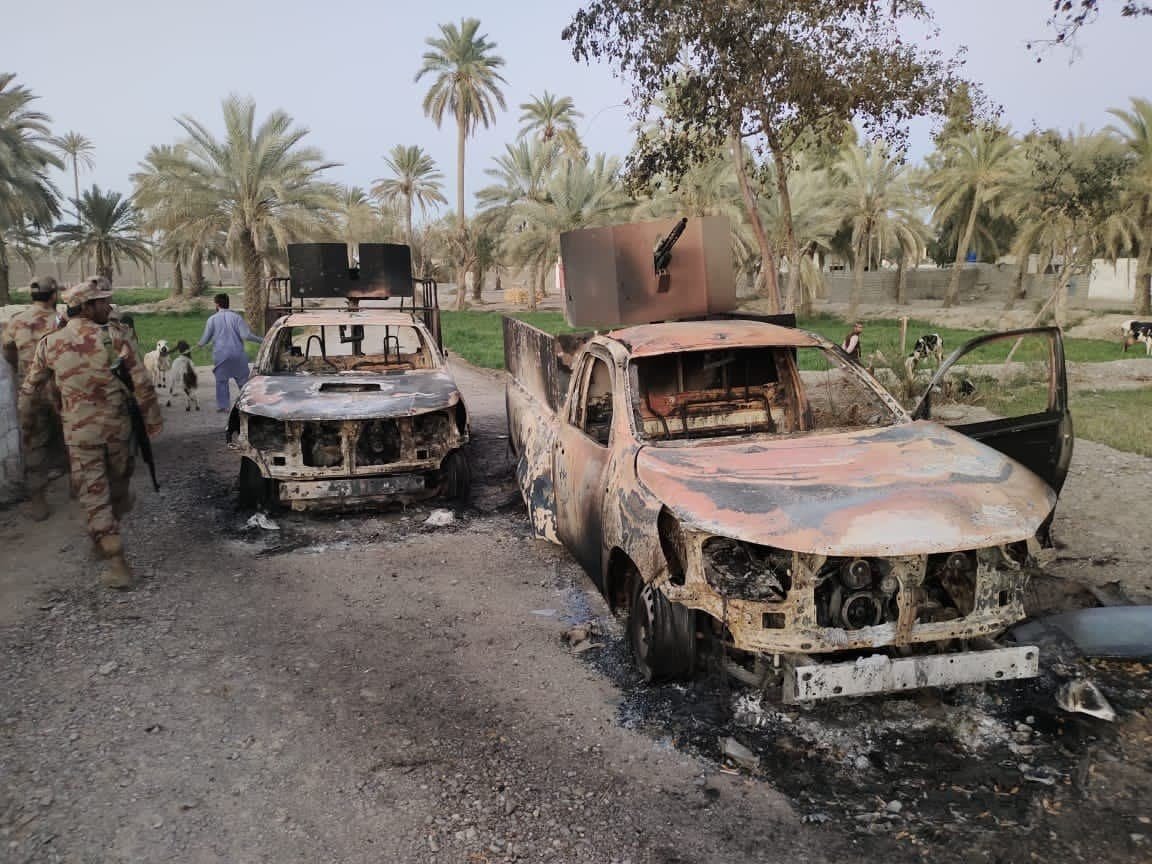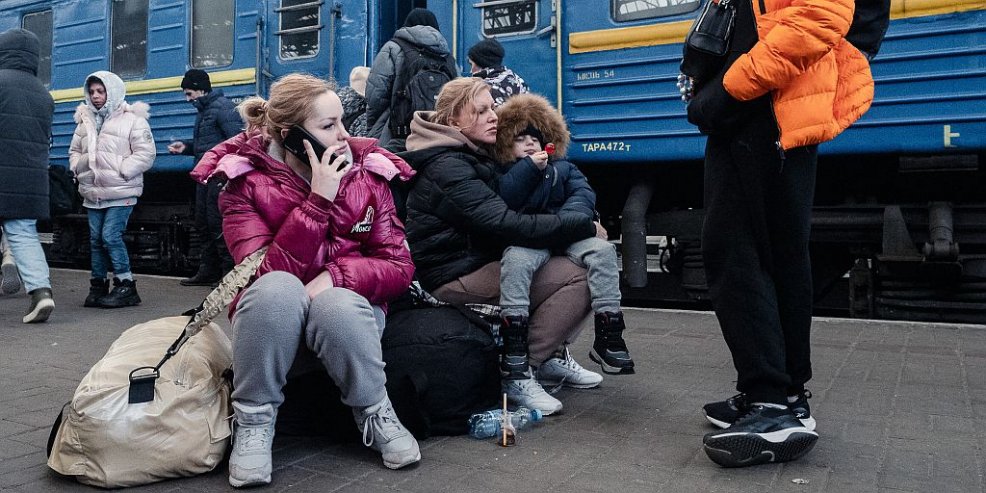Baloch and Pakistan are in Permanent Conflict since 1948. The conflict is still continuing. In this series of two articles, we have tried to cover the history of this conflict covering the period 1948. In our next article we shall cover the period after 1977.
In our previous article, “Balochistan Engineers, Medical Students, Pharmacists, Mine Workers, Teachers On Strike” , we covered how Engineers, Pharmacists, Medical students and other groups are on strike since a month. How Pakistan is exploiting Balochistan. There is a permanent conflict in Baloch and Pakistan.
Four days before the freedom dawned on India — including the bloody partition — one other state became free of the Britsh colonialism after 108 years of occupation. The country in question is Balochistan, annexed by the British in 1839.
King of Balochistan, Ahmed Yar Khan – best known as Khan of Kalat announced declared independence on 11th August 1947. The following day The New York Times reported in it’s printout. The monarch’s declaration was not out of the blue, it was done with the approval of the departing British Empire and about to be born Pakistan.
Pakistan’s pseudo intellectuals, often justify Balochistan’s annexation on the grounds that princely states were meant to be merged into the independent states of India and Pakistan. By this definition Pakistan’s taking over Balochistan was as justified in the same manner as of Hyderabad by India. Pakistan’s obsession with the former Deccan principality is a different matter, I’ll leave it at that.
Following the 15th August 2016 address by India’s Prime Minister Narendra Modi, the Baloch question did become a hot topic in India for the following months to say the least. The unprecedented media coverage on the subject allowed Baloch nationalists and Pakistani propagandists to air their views via Indian medium. In the following talk shows, discussions and debates, the Pakistanis failed to muster up a single argument batting for their side. Other than the princely state rhetoric by one Pakistani journalist (I can’t recall his name now) on the Newshour, the only other justification from the Pakistanis came from the Col Shafkat Saeed with the preposterous claim on the lines of ‘Prophet of Islam paying Khan of Kalat a visit in his dream, commanded him to join Pakistan, the monarch obliged’.
This nonsense is not worth elaborating on, one can only be amused at the level of stupidity displayed by Pakistanis, including military officials. Col Saeed said it not once but twice. At First, the retired army man said it on Zee News when pitched against Naila Baloch following the abduction of Kulbhushan Jadhav. He went on to repeat the same revelation on the Newshour the second time post Modi statement from the remnants of Red Fort.
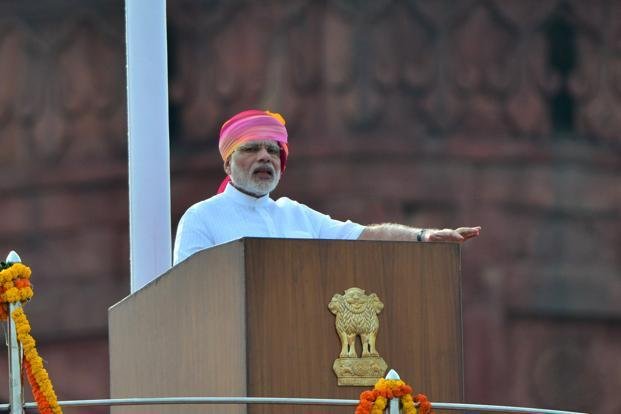
Before going into how the curse of Pakistan became Balochistan’s destiny, we need to go back in time to draw a clear picture on Balochistan’s legal status to press home the Baloch nation’s justification in seeking liberation from the illegal occupation.
Balochistan’s comparison to the former princely states is misreading of history. This has harmed the Baloch cause in the international arena for decades. Kalat aka Balochistan, during the colonial era, had a direct treaty with the Whitehall not with the Viceroy of India. The princely states were in Category A under the political department of British India. The states in Category B came under External Affairs portfolio, thus affirming the legal basis for the international status of the concerned states. Balochistan, — known as Kalat back then — was in the Category B. Kalat was grouped together with five more entities in the Category B; namely Bhutan, Burma, Ceylon, Nepal and Sikkim. Apart from Sikkim all the others are international entities. Sikkim’s case is also not analogous to Balochistan. The former merged into Indian Union in 1974 following a referendum with more than 95% voting for India, the latter was forcibly annexed on the barrel of the gun soon after independence, after the local elected body of Kalat voted against the merger with Pakistan on religious grounds alone.
1935 — 1947
To get the better sense of the events, we must briefly discus what transpired in between 1935 and 1948.
The Government of India Act 1935 declared Kalat an Indian princely state without consulting the ruler. Khan of Kalat protested this unilateral act is in breach of all the past agreements, but British managed to nudge him around, following the outbreak of war in 1939, they had more pressing issues on hand and the legalities took a back seat in their list of priorities. It was in this period the Baloch monarch sought legal advice to regain his kingdom. The Khan hired the services of none other than Mohammed Ali Jinnah, which later proved to be the Baloch misfortune. Congress position on princely states was clear, (they viewed Kalat as one) all would merge into India after British departure. Jinnah on the other hand was lenient on princes and feudal lords. The Khan naively believed Jinnah would deliver the goods. Interestingly Jinnah presented the case for Balochistan’s independence before the Cabinet Mission Plan in 1946, (so convincingly) the following year the departing British acknowledged Kalat’s sovereign status with the addition “Kalat is not an Indian state”, thus anulling Kalat’s inclusion into the Government of India Act 1935 as an Indian state. In other words, Pakistan is not in a position even to use 1935 Act as a pretext to justify Balochistan’s unwillful inclusion. The much overjoyed Khan declared independence four days before the British withdrawal from India. However the jubilation was to be a short-lived one. All the legal niceties were just an eyewash. The ugly reality was about to raise it’s head, the messiah would be turning Brutus soon. The British too went back on their commitments, allowing Jinnah to conquer the defenceless country. British had the greater geo-political interest to keep out USSR getting access to the warm waters, with this in mind, Kalat’s inclusion into Pakistan was vital to secure their interests.
Betrayal
Pakistan, born out of India’s bleeding body, did not include Balochistan until 27th March 1948. It has been established Pakistan’s founder Jinnah not only recognised but actually fought the case for Balochistan’s right to a statehood and he won. Within few days of Pakistan’s foundation Jinnah reneged on his earlier commitments and he pressed the Khan to merge his kingdom into his newly founded state. The monarch put the question before his Upper House and Lower House respectively. The both houses unanimously rejected Jinnah’s offer. Speaking before the Baloch National Parliament (Dar ul uloom) in Dhadar on 12th December 1947 the Baloch nationalist icon Ghous Bakhsh Bizenjo made a landmark speech which defines how Baloch differ from the rest of Pakistan on the idea of identity, nationhood and even on the role of religion in the statecraft.
…We are muslims but it is not necessary…we should lose our freedom and merge with others. If the mere fact that we are Muslims requires us to join Pakistan then Afghanistan and Iran…should also amalgamate with Pakistan … Ghous Bakhsh Bizenjo (1947)
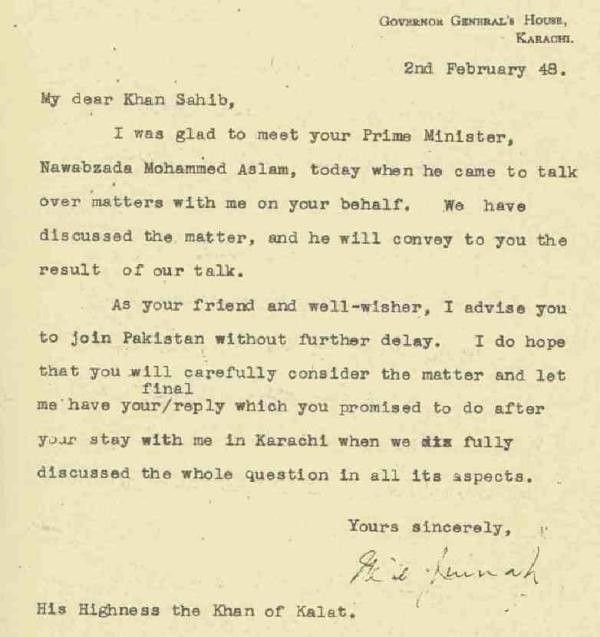
Jinnah, after realising, the Baloch King and the nationalists won’t concede to his unjust demand ordered the military to force Khan into submission. The Baloch ruler finally capitulated, on 27th March 1948, he signed off his state to whims of his ex-lawyer whom he held in highest regards before the devil showed his true colours.
Nehruvian blunder
India’s indifference to Kalat’s independence up until 1947 is understandable. However after it became obvious the freedom will be at the cost of India’s unity, India’s policy under Nehru makes no sense whatsoever. Baloch nationalists say their elders approached for Indian help — read Nehru and Maulana Azad — but India declined to assist the desperate Baloch. All India Radio broadcast on 27th March 1948 — the same date when Pakistan invaded Balochistan — was the final blunder which sealed Balochistan’s fate. AIR reported, Ahmad Yar Khan had applied for Balochistan’s accession to India two months earlier and India turned it down due to geographical realities.
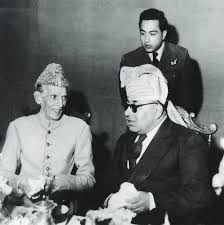
The timing of this announcement couldn’t have been any worse, it provided Pakistan an oxygen to deliver the knockout punch, that’s exactly what they did. Though Nehru later denied it to make amends but the damage was done, Pakistan became Balochistan’s fate after a short lived independent status. Taking into the consideration that prior to the British departure from India, Balochistan was in the same league with Nepal, Bhutan, Myanmar and Sri Lanka, this in itself provides moral justification to Baloch national movement.
State occupies the nation
Before going into the current on going militant uprising it is imperative to analyse the Baloch national question through the lens of the ideology of Pakistan and the first 4 armed conflicts between the Baloch and Pakistan. The current uprising which intensified after Nawab Akbar Bugti’s assasination will be dealt further ahead.
Pakistan fits in the category of a state without a nation. What makes a nation? There’s no such thing as Pakistani culture, language, music, jewellery, clothes, music, poetry et al. The country lacks all the attributes of a nation. Pakistan’s lack of national identity is best summed up by the words of Nawab Khair Bakhsh Marri; “in reality it’s (Pakistan) not even there”. Do the Baloch have sense of history to be the masters of their destiny? This is best answered by Akhtar Mengal’s father and Balochistan’s ex Chief Minister Sardar Ata Ullah Mengal. He told BBC in a 1987 Channel 4 documentary, Balochistan: The Gathering Storm: “Baloch has a history of a different identity. It has all the qualities of a separate nation. It has got its own language, it has got its own culture, own heroes and it has got its own land.”
Conflicting narratives
Pakistani identity rests on anti India hatred — especially for its Hindu majority — and, on the glorification of the Muslim invaders pillaging their way through India over 1000 years. In reference to the Hindu – Muslim divide Pakistan’s founder Muhammad Ali Jinnah on 23rd March 1940 remarked, “very often the hero of one is a foe of the other .” Under closer scrutiny this line is more applicable to the Baloch – Pakistan relations than it were to the Hindus and Muslims in India. What do the Baloch think of Pakistani “heroes”? The Baloch and Balochistan book is a must read to get a clear picture. The Baloch nationalist Naseer Dashti (4 VL) — in the opening 8 chapters of the book — records all the resistence the Baloch tribesmen put up against nearly all the marauders the Pakistanis worship as saviours of Islam. From Muhammad Bin Qasim to the Mughals, the Baloch confronted most of them. They actually cherish their forefathers valour against the marauding hordes. In the eyes of the Baloch all Pakistani “heroes” are the enemies. The quote below is from a Baloch friend of this scribe…

The clashes with Persians, Arabs, Turks, Ghaznavids, Ghurids, Afghans, Mughals, British and Pakistanis in the longer run reinforced the sense of belonging to the Baloch nationhood over the Islamist theocracy. This relatively lesser known history is often glossed over by the Pakistanis and mostly overlooked by the Indians following the Baloch movement.
During the foreign Muslim occupation of India, the country of the Baloch even in the worst of the times enjoyed autonomous status from the powers of days dominating India and Persia. The British control over Balochistan was not direct. Ata Ullah Mengal — in the aforementioned Channel 4 documentary — said “British were so behind the scene the common man couldn’t have noticed their presence”. The Baloch never participated in the Pakistan movement, they admired the Kalat State National Party’s anti colonial struggles instead of the polarization of the Muslim League. On the day Lahore Resolution declaration not a single Baloch was present in Lahore in support of Jinnah’s Two Nation Theory. Qazi Isa from the erstwhile British Balochistan was there but he was a Pathan not the Baloch. Ironically the political Baloch movement predates even the coinage of “Pakistan” (in 1933). The 2009 Dawn article under the heading ‘Inside Kalat’ documented

…Baloch nationalism was ‘constructed’ and ‘created’ by Baloch leaders, and it only took shape in the years 1915 till 1955 in response to political circumstances prevailing at the time. It was concretised as a result of the development of a political party, the Anjuman-i-Ittehad-i-Balochan-wa-Balochistan in 1930-31 led by two nationalist stalwarts, Mir Yusuf Ali Magsi and Abdul Aziz Kurd.
The Anjuman gained further credence in the agency and personality of Mir Ahmad Yar Khan who became the Khan of Kalat in 1933. With active support from the Khan, the Anjuman spread its activities and eventually transformed itself as the Kalat State National Party (KSNP) in 1937 which now included within its fold eminent personalities such as Ghous Bux Bizenjo and Mir Gul Khan Naseer”…
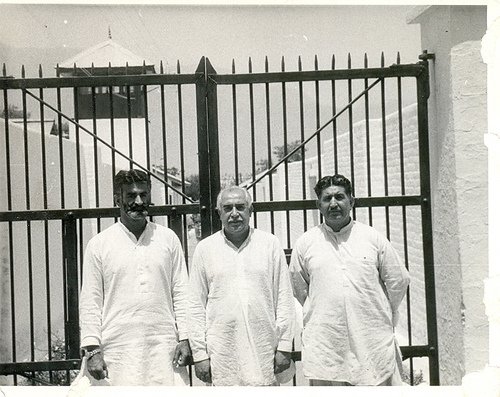
The Anjuman-i-Ittehad-i-Balochan-wa-Balochistan the first nationalist political party was established in 1930. The early Baloch nationalists were educated in Indian institutions, they were inspired by Congress led anti colonial movement. Anjuman’s successor Kalat State National Party leadership were closely linked to the Indian National Congress not with the Muslim League in 1940s. Yaqoob Khan Bangash in one of the articles in Express Tribune writes…
“Baloch are a very peculiar social organism with their secularity and their strong tribal networks and leadership. These factors meant that in the 1940s the Islamic rhetoric of the Muslim League failed to make an impact on the Baloch. The only strong political party in the area was the Kalat State National Party (KSNP) which was nationalist and secular in its outlook and aligned with the Congress”
If the world is to defy all the scholarly interpretations of a nation-state and agree to Pakistan’s distorted version of nationalism, the Baloch would still fail to fit in with the idea of Pakistan. The writing is on the wall. Pakistan’s own national narrative is antithesis to everything the Baloch nation stands for. Unlike the artificial entity created in 1947 the Baloch can refer to the 17th century state of Kalat as the historical basis of their claims.
Direct confrontation
Following the British departure Balochistan has remained in a continuous rebellion vis-a-vis Pakistani state. The Baloch rose five times against Pakistani occupiers since the forced annexation of 27th March 1948. The uprisings produced the heroes and martyrs for the cause. The names of Abdul Kareem, Nawab Nouroz Khan, Ata Ullah Mengal, Bizenjo, Nawab Marri, Asad Ullah Mengal, Sher Muhammad Marri et al have become synonymous with the fast evolving liberation struggle. In the contemporary times Balach Marri, Ghulam Muhammad Baloch, Saba Dashtyari, Harbiar Marri, Brahumdagh Bugti, Aslam Baloch and Dr Allah Nazar Baloch (aka Dr Nazar) and many others taken over the mantle from the elder generation icons.
Saviours and tormentors
Pakistan’s tallest leaders and military dictators are despised to the core in Balochistan.
Abdul Kareem’s first war of independence in 1948 not only secured his position in the annals of Baloch history but also cemented Jinnah’s reputation as liar, backstabber and occupier. The double dealings of Jinnah were highlighted by this writer in Why Balochistan should not be equated with the Princely States. Two violent insurgencies (1958 and 1963) were triggered in Ayub Khan’s dictatorship; the legends of Nawab Nouroz Khan and guerilla commander Sher Muhammad Marri were the direct outcomes of the heavy-handedness of Pakistan’s first military dictator. Ayub Khan’s dictatorship also oversaw the founding of the politically motivated Baloch Students Organisation (BSO) on 26 November 1967 with the aims of organizing the Baloch students on revolutionary platform that would help shape the Baloch society as the societies of living nations in world by educating the Baloch youth politically, literally and culturally, and to head towards the establishment of a free Baloch state.
Zulfiqar Ali Bhutto fares no better Jinnah and Ayub Khan in the eyes of the Baloch. Bhutto dismissed Balochistan’s elected local government in 1973 resulting in the 4th uprising that lasted 4 years and leaving thousands dead. Adnan Aamir writing for the Pakistani newspaper the Nation describes Bhutto’s autocratic way of handling the Baloch nation like this…
…NAP government in Balochistan took power in May 1972 and it was dismissed by Bhutto on flimsy charges in February 1973. During this short period of nine months, there was not a single day when the NAP government didn’t have to face political machinations and pressure tactics thanks to Bhutto. The bureaucracy of Balochistan was under the federal government’s control at that time and Bhutto instructed all bureaucrats to not obey orders of NAP government ministers. Bhutto through his henchmen manipulated Balochistan Police to go on strike and created problem for NAP government to rule the province.
That was not all, Zulfiqar Ali Bhutto who was the prime minister stooped low to the level of a street thug. He engineered riots and civil disorder in Pat Feeder Canal area and Lasbela district. When a country’s premier is hell bent on creating disturbance in a city, then of course, for obvious reasons no one can stop him. Finally, he concocted the Iraqi Embassy Weapons discovery case as the final excuse to topple the first democratically elected government in Balochistan…
In opposition to Bhutto the Baloch masses identified Nawab Marri and Sardar Ata Ullah Mengal the national heroes upholding the Baloch values.
In the contemporary times Pervez Musharraf and his successors Ashfaq Kayani, Raheel Sharif and Qamar Javed Bajwa are the butchers of Balochistan and that’s exactly how they’re perceived by the people. No nation celebrates its butchers save Pakistanis. From 1948 the successive Pakistani rulers defined the Baloch mational heroes as turncoats and traitors. The treatment meted out to Ghous Bakhsh Bizenjo is just one example of the many. Bizenjo’s choices from the very beginning of his long and extraordinarily active political career did not qualify him for admission in the club of patriots as defined by the establishment. For instance, he did not conceal the fact that as a young man he was attracted to the Indian Congress and not the Muslim League.
Contrasting memories
None of the national days of Pakistan are celebrated in Balochistan. Each year 27th March is observed as the day of occupation by the Baloch people. Riaz Baloch of the Balochistan Post writes “on 27th March 1948 newborn Pakistani state attacked and forcefully annexed the sovereign Baloch state on gunpoint, since the occupation of Balochistan in 1948 Baloch people have been observing the 27th March as a black day”.
Balochistan’s independence date 11th August differs from the 14th August celebrated by the Pakistanis, though Pakistan became independent on 15th August 1947. 6th September is annually observed as Defence Day by Pakistanis in ignorance of the imagined “victory” over India in the war of 1965. The Baloch Martyrs Day falls on 13th November (16) in remembrance of the fallen warriors went down fighting the British in 1839, including the Baloch ruler Mahrab Khan. Most of the Pakistanis are unaware who Mahrab Khan was. Saeed Baloch writing for the nationalist Baloch Warna captures the true emotions of the Baloch on the significance of the date…
…Baloch Nation has a long history of sacrifices for their motherland and for their freedom. Baloch always fought the foreigner invaders who stepped into Baloch land with the intention of occupying Baluchistan, whether they were Arab invaders, Mughals, Mongols. English invaders or Pakistani and Iranian occupiers, the Baloch nation did not budge an inch on its determination of defending its Motherland and giving sacrifices for their freedom.
On thirteenth November 1839, British imperialist invaded Baluchistan, hence, the war began between seven thousand English soldiers and three hundred Baloch Freedom fighters, Mir Mehrab Khan and his comrades bravely confronted the enemy until the last drop of their blood. The invaders were more powerful than Baloch in terms of sophisticated weapons and technology, in spite of having full knowledge of enemy’s strength, Baloch freedom fighters did not surrender but stepped into the battlefield to get martyrdom for their motherland, as Mehrab Khan was consulted by some of his friends (one of them was Mohammad Siddiq) not to fight the British Army, because of their strength and sophisticated weapons , Mehrab Khan replied in these inspirational words “I may not defeat the enemy but I can die for my motherland” he stood by his words and defended the Baloch sovereignty until his last breath.
The Baloch Nation has selected 13 November as the ‘Baloch Martyrs’ Day or Remembrance Day’ because of its historical importance and to honour the sacrifices of Mir Mehrab Khan, his comrades and every Baloch freedom fighter who laid his or her life defending the Baloch homeland and Baloch people against foreign worriers. The day of 13 November is also important in terms of unity of the different Baloch parties and organizations because when they stand united to pay homage to the martyrs of liberation on ‘Baloch Martyrs’ Day’ it will get them the sense of realization that if they stand together on every front, no power can defeat them and they can soon gain their goal”…
The dates of 26th August 2006 and 21st November 2007 hold significance for the Baloch in tribute to the valor of Nawab Akbar Bugti and Baloch Marri respectively. Both stalwarts gave the supreme sacrifice fighting Pakistan. The importance of 3 dates; 27th March 1948, 26th August 2006 and 21st November 2007 matters more because the adversary is none other than Pakistan itself. The most respected Baloch national statesmen Nawab Bakhsh Marri — in an interview to Malik Siraj Akbar — pulled no punches what he thought of the Punjabi dominated fascist entity…
…“The others issues are all domestic which could be discussed later on but the foremost thing is that Punjabis should quit Balochistan… I can coexist with a pig but not with a Punjabi,”…“The Punjabis view the Baloch as a very inferior people. They think we are not competitive in any domain of life. They say the Baloch can’t fly an airplane. Thus, they justify their involvement in our maters by saying that they want to develop us. I keep asking who the hell they are to develop us. We are the masters of our land. Who are you to come and teach us? If we can’t fly an airplane today, we will learn it after ten years. If we don’t have qualified doctors today, we will have them tomorrow. But this does not provide you an excuse to exploit our resources on the name of development”…
When questioned on the possibility of the Baloch taking India’s assistance to yoke off the Pakistani occupation, Nawab Khair Baksh Marri candidly replied “even if the swine helps” the Baloch would take it. In the Al Jazeera documentary (2011) the late Nawab went on “is India such a demon….we’ll refuse their help….why(?)…to prove we’re good Muslims or Pakistanis…neither applies…we’re Muslims for our sake not for Pakistan’s sake”.
The artificial entities can not last forever. Nationhood can never be realized on the Utopian ideas. The Baloch had set the ball rolling from 1948. Pathans and Muhajirs have joined the party. Sindhis are lurking in the shadows. Muhammad Ali Jinnah must be turning in his grave.
About the Author: Faisal Hussain, the author is a Nationalist Indian, based in UK. He has done extensive research on the nationalist movements in Balochistan.
Follow us at:
Twitter Handle: @communique_news
Parler Handle: @newscommuniquecom
3,031 total views



